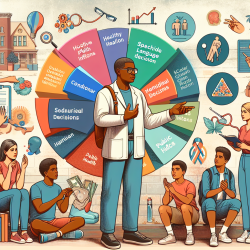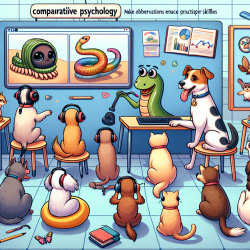Understanding the Neurodevelopmental Challenges in Duchenne Muscular Dystrophy
Duchenne Muscular Dystrophy (DMD) is a severe X-linked neuromuscular disorder characterized by progressive muscle degeneration. While the physical symptoms of DMD are well-documented, the neurodevelopmental challenges faced by young boys with DMD are often overlooked. The research article "Neurodevelopmental Needs in Young Boys with Duchenne Muscular Dystrophy (DMD): Observations from the Cooperative International Neuromuscular Research Group (CINRG) DMD Natural History Study (DNHS)" sheds light on these critical needs.
Key Findings from the Research
The study evaluated 204 boys aged 4 to less than 9 years with DMD, revealing a high prevalence of neurodevelopmental needs. The most commonly reported issues included:
- Speech delay (33%)
- Mild developmental delay (24%)
- Significant behavioral problems (16.5%)
- Language impairment (14.5%)
- Learning disability (14.5%)
Notably, these neurodevelopmental needs were more frequently reported in boys with DMD mutations downstream of exon 51, highlighting the need for targeted interventions.
Implications for Practitioners
As practitioners, understanding these neurodevelopmental challenges is crucial for improving the quality of life for children with DMD. Early intervention, especially in cognitive health, can significantly impact these children's educational and social outcomes. Here are some practical steps practitioners can take:
- Early Screening and Diagnosis: Implement regular screenings for neurodevelopmental issues in children with DMD, focusing on speech and language delays.
- Individualized Education Plans (IEPs): Collaborate with educators to develop IEPs that address the specific needs of each child, ensuring they receive the necessary classroom support.
- Parental Involvement: Engage parents in the therapeutic process, providing them with resources and strategies to support their child's development at home.
- Utilize Online Therapy: Consider integrating online therapy services, like those offered by TinyEYE, to provide consistent and accessible support for children with DMD.
Encouraging Further Research
The findings from this study underscore the need for continued research into the neurodevelopmental aspects of DMD. By exploring the genetic and environmental factors contributing to these challenges, we can develop more effective interventions and support systems. Practitioners are encouraged to stay informed about the latest research and integrate evidence-based practices into their work.
To read the original research paper, please follow this link: Neurodevelopmental Needs in Young Boys with Duchenne Muscular Dystrophy (DMD): Observations from the Cooperative International Neuromuscular Research Group (CINRG) DMD Natural History Study (DNHS).










